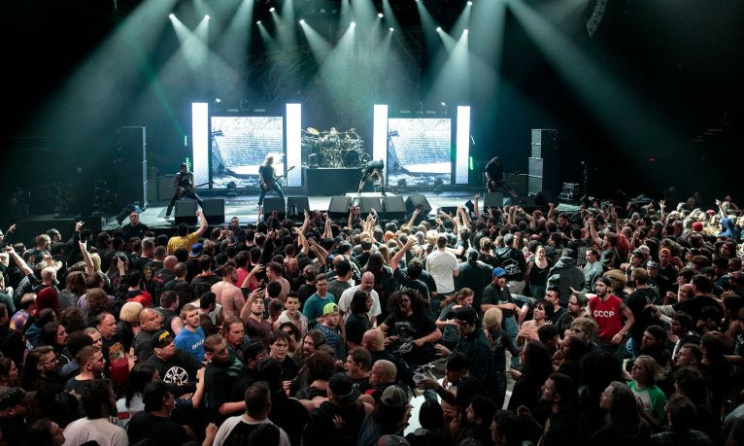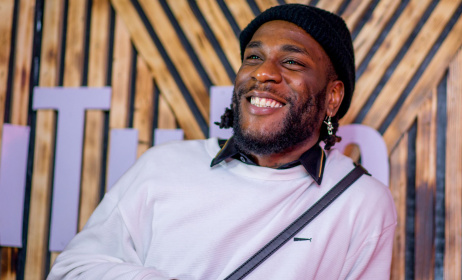Will COVID-19 concert vaccinations limit freedoms?
Last week’s news of a potential COVID-19 vaccine raised optimism for a return to normalcy around the world. The news was followed by Ticketmaster’s announcement that it would check concertgoers’ vaccine status or COVID-19 test results before entry at events. Although the vetting system could accelerate the process of reinstating live events, it is worth discussing the legal implications that such requirements could have on the rights of ordinary citizens.
 Ticketmaster's new system may require COVID-19 vaccines and testing.
Ticketmaster's new system may require COVID-19 vaccines and testing.
Would concertgoers effectively be trading their individual freedoms in exchange for entertainment? More importantly, could the vaccine potentially bring about the development of similar systems in other industries bound by social interaction, ultimately creating an environment that undermines constitutional rights?
The vaccine announcement was met with widespread optimism across global economies, and stock markets immediately reacted to the news. Live industry companies’ share prices experienced some of the biggest spikes. With the vast majority of festivals cancelled and the sector’s revenues plummeting 90% since March, the live entertainment industry has been at the forefront of frantic solutions such as drive-in concerts in a desperate effort to maintain business continuity.
Ticketmaster’s vetting system pulls three separate components together, including the company’s digital ticket app, third-party health information companies, and testing and vaccine distribution providers. After purchasing a concert ticket, fans would need to prove that they have been vaccinated or have tested negative for COVID-19 in the past 24 to 72 hours, depending on the regional health authorities’ determination. Fans who test positive will not be granted access to an event and the goal is to avoid testing at the venue.
If a similar system was implemented in South Africa, it would fall under the new regulations enacted in April. Although the revamped guidelines limit the rights of persons, they could be considered as justifiable limitations of rights. This is according to an article by lawyer Jade Weiner. Section 36 of the South African Constitution provides guidance about when rights in the bill of rights can be limited. Weiner says that “a balance must be struck between limiting the right and the outcome – taking into account the nature of the right, the importance, nature, extent and purpose of the limitation and whether the limitation is the least restrictive means to achieve the purpose.”
The South African Constitution is founded on the ideals of human dignity, freedom and self-determination, and although vaccine vetting and mandatory testing would go against the commitment to these values – based on the facts and Ticketmaster’s proposed system – the purpose of preventing the spread of a deadly virus in the country outweighs individual freedoms. The onus then rests on individuals to determine whether maintaining their individual rights is more important than attending an event and being subjected to immunisation or testing against their will.
Additionally, Weiner explains that decisions about our own individual lives cannot be made in isolation. “We consider ourselves in relation to our families and communities. Healthcare decisions often consider responsibilities owed to and by an individual to others.” It is therefore necessary to think of the potential greater good achieved by the vetting system on society at large, rather than diminished individual freedoms. The reintroduction of lockdown rules around the world following spikes in COVID-19 numbers would make individual rights and dignity less important than the prevention of a highly contagious and deadly virus.
Following the Ticketmaster announcement, the company’s president Mark Yovich, provided clarity on its plans, emphasising that it won’t be setting entry policy for live concerts but just providing options for promoters and venues. “Ticketmaster’s goal is to provide enough flexibility and options that venues and fans have multiple paths to return to events, and is working to create integrations to our API [application programming interface] and leading digital ticketing technology as we will look to tap into the top solutions based on what’s green-lit by officials and desired by clients,” he said.
However, the development of systems similar to Ticketmaster’s, which require people to prove that they’ve taken a vaccine or tested negative for COVID-19, is not limited to the live events sector and could see its introduction to other areas that require social interaction, including sports, religious functions, professional engagements, travel or simply eating out at a restaurant. Last week, Cuba issued a list of COVID-19 testing entry requirements, which include testing tourists for COVID-19 upon entry. After the test is taken, the travellers have to quarantine at their hotel for a minimum of 24 hours before they get their results.
While it may be easier to decide whether to concede your individual rights in exchange for attending a concert, determining what choice to make would become far more complex when putting livelihoods on the line.
Butchie Seroto is an in-house writer at Music In Africa. The author’s opinions are his own and do not necessarily reflect the views of the publication.



























Commentaires
s'identifier or register to post comments